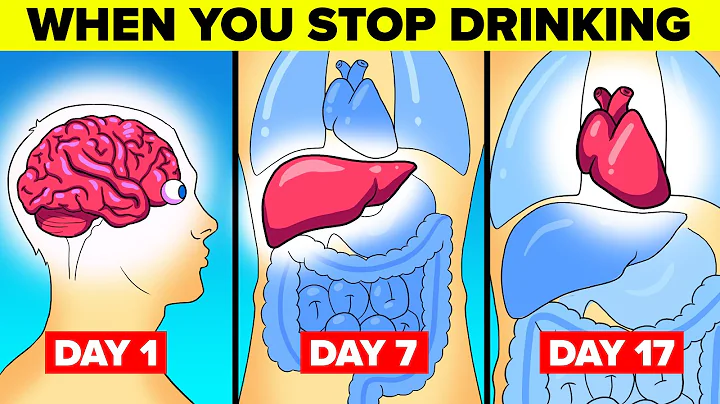What happens to your body when you stop drinking for 3 weeks?
By the third week without drinking, you'll have improved memory and cognition! In the absence of alcohol, the nerve endings in the brain's hippocampus receive more even and consistent blood flow, which results in better short-term and long-term memory.
Minor detox symptoms may show up in just 2 to 6 hours after your last drink, she says. They will typically peak in 1 to 3 days for a lighter drinker, but may last for a week with heavy drinkers. Persistent withdrawal symptoms are fairly rare, she says, but they may last for a month or more.
Research has found that just four weeks without a drink can be enough to start lowering both blood pressure and heart rate. * Your risk of type 2 diabetes has already started to reduce (in one study insulin resistance came down by an average of 28 per cent) and your cholesterol levels should be starting to lower.
“The simple act of taking a month off alcohol helps people drink less in the long term; by August, people are reporting one extra dry day per week,” notes Dr. de Visser. “There are also considerable immediate benefits: nine in 10 people save money, seven in 10 sleep better, and three in five lose weight,” he adds.
Most expert guidelines suggest avoiding drinking alcohol for 30 days to help your liver restore to its normal function. After, it's imperative to follow moderate drinking guidelines or, even more helpful, to continue abstaining from alcohol use.
You will experience physical signs your liver is healing, such as healthier-looking skin and eyes, increased energy levels, and reduced stomach pain and swelling. Other signs your liver is healing include: Improved amino-acid regulation – Your liver processes proteins and amino acids that your body cannot store.
Withdrawal symptoms can include sweating, tremors, sleep problems, rapid heartbeat, nausea and vomiting, hallucinations, anxiety, restlessness, and possibly even seizures.
The following are just some of the positive outcomes you may see by abstaining from alcohol: The body's ability to absorb vitamins and minerals increases. Metabolism is restored, leading to fat loss.
- feeling sick.
- weight loss.
- loss of appetite.
- yellowing of the whites of the eyes or skin (jaundice)
- swelling in the ankles and tummy.
- confusion or drowsiness.
- vomiting blood or passing blood in your stools.
You can lose weight when you cut alcohol, especially if you tend to binge on a semi-regular basis. Cutting out alcohol means cutting calories, as well as improved overall health and wellness — both leading towards a healthy body weight.
How long does it take for brain chemistry to return to normal after alcohol?
It takes at least two weeks for the brain to return to normal after drinking. Therefore, this is when the alcohol recovery timeline begins. It is less able to suppress a desire to drink until the brain has recovered. The reason for this is that alcohol has harmed the brain's cognitive function.
Cutting out two, 12-ounce light beers per night could help you lose almost 2 pounds in 31 days. Skipping your nightly 2 glasses of wine would spare you 7750 calories in 31 days, which could help you lose a little over 2 pounds.

Because the liver is a tolerant organ, he said positive changes can occur within weeks of going dry. Kumar added that in the absence of alcohol, “the liver can focus on its other jobs, such as breaking down other toxins produced by the body, metabolizing fats and excess hormones that need to be broken down.”
- feeling sick.
- weight loss.
- loss of appetite.
- yellowing of the whites of the eyes or skin (jaundice)
- swelling in the ankles and tummy.
- confusion or drowsiness.
- vomiting blood or passing blood in your stools.
6 Weeks Without Alcohol
You may have higher thinking and problem-solving skills, memory and attention than those who are still drinking alcohol. Several studies show that if you stop drinking, your chances of getting cancer, having a stroke and early death will decrease.
Withdrawal symptoms can include sweating, tremors, sleep problems, rapid heartbeat, nausea and vomiting, hallucinations, anxiety, restlessness, and possibly even seizures.
Your healing gut may be absorbing more nutrients.
Taking a break from booze also gives your gut a chance to heal alcohol-induced damage and take in more nutrients. That may mean weight gain because your body "is finally getting nourished again," Brooks said.